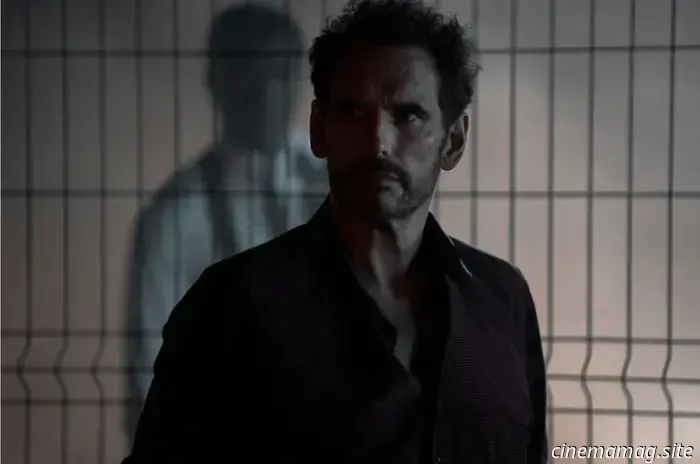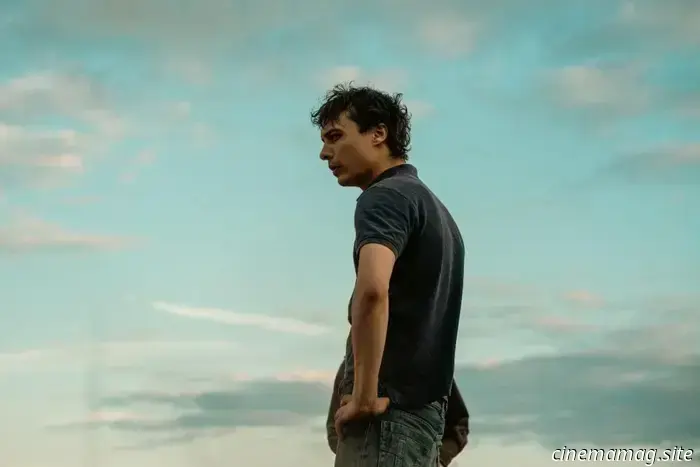
TIFF Review: Claire Denis’ The Fence Offers a Disturbing Glimpse Into Darkness
Is the perception of a Claire Denis film evolving? When her name is mentioned, one might typically envision an image that is elliptical, sensual, and avant-garde. However, her recent works seem to indicate a shift towards a more straightforward and less enigmatic approach. It could be argued that her latest film, The Fence, resembles a concluding work—not necessarily as a grand encapsulation or declaration, but rather as a reduction of nearly everything possible. The film appears to focus predominantly on politics—or possibly character and dialogue, a favorite aspect of Denis, known for her admiration of the wordy Jean Eustache—rather than a traditional mise-en-scène. Adapted from Bernard-Marie Koltès’s play Black Battles with Dogs, its theatrical roots yield both effective and detrimental outcomes, hinting at someone eager to quickly realize an adaptation of a beloved piece.
Kicking off with the blunt title card "A construction site in West Africa" (almost reminiscent of a Hollywood action film), The Fence thrusts us into a colonial dynamic that has been present since the start of Denis’s film career. Horn (Matt Dillon) is the foreman at this site, striving to complete his work amidst what seems to be a Chinese takeover. One night, however, Alboury (Isaach de Bankolé) appears on the opposite side of the fence that safeguards the workers' residence; the stoic, older African man, dressed far more elegantly than the crude Horn—Saint Laurent provided the attire—demands the return of his deceased brother's body, who had been employed at the site. Horn is keen to protect his position and standing, aiming to retain the loyalty of his much younger wife, Leonie (Mia McKenna-Bruce), while also keeping the worker responsible for the accident, Cal (Tom Blyth), safe, with both motives intersecting in ways that will be revealed later.
Much of the film’s tension manifests through simple handheld shot-reverse dynamics across the fence, with Dillon convincingly portraying a foolish yet condescending man struggling to feign ignorance. Meanwhile, Denis’s long-time collaborator de Bankolé—likely in his most significant role since The Limits of Control—infuses his character with a commanding presence, embodying essentially a specter. Frankly, The Fence is as straightforward as it sounds, although an early instance of what appears to be an AI-generated shot for a dream sequence suggests the introduction of an entirely new visual landscape that ultimately remains unfulfilled.
The majority of the film is marked by silence; the sounds of chirping crickets fill the air, yet the expected score by Tindersticks is absent. At one point, Leonie expresses to Horn the constant sense of doom that has overshadowed her existence, and an accumulating sense of something amiss effectively highlights a subdued atmosphere. Yet, one wishes for the tension to escalate more sharply, or yield surprising twists. This contributes to why The Fence feels like a concluding film: it confronts the dark reality of the present, revealing a void that seems devoid of hope.
The Fence debuted at the 2025 Toronto International Film Festival.
Other articles
 Urchin Trailer: Harris Dickinson’s Compelling Directorial Debut Set to Release This October
Although directorial debuts are often hit-or-miss, those by actors tend to be even more unpredictable. However, one notable exception in recent times is Harris Dickinson's "Urchin." This compelling character study centers on a man in London caught in a spiral of self-destruction as he strives to change his life. Frank Dillane stars in the film, delivering one of
Urchin Trailer: Harris Dickinson’s Compelling Directorial Debut Set to Release This October
Although directorial debuts are often hit-or-miss, those by actors tend to be even more unpredictable. However, one notable exception in recent times is Harris Dickinson's "Urchin." This compelling character study centers on a man in London caught in a spiral of self-destruction as he strives to change his life. Frank Dillane stars in the film, delivering one of
-Review-Directorial-Debut-Captures-Bittersweet-Longing.jpg) Sunfish (& Other Stories on Green Lake) Review: A Directorial Debut that Embodies Bittersweet Longing
Please note: This review was initially published as part of our coverage for Sundance 2025. "Sunfish (& Other Stories on Green Lake)" will be released in theaters on September 12. Filmmaker Sierra Falconer’s "Sunfish (& Other Stories on Green Lake)" evokes a bittersweet sentiment. It conveys the simultaneous nature of endings and beginnings. Over the course of eighty minutes, we
Sunfish (& Other Stories on Green Lake) Review: A Directorial Debut that Embodies Bittersweet Longing
Please note: This review was initially published as part of our coverage for Sundance 2025. "Sunfish (& Other Stories on Green Lake)" will be released in theaters on September 12. Filmmaker Sierra Falconer’s "Sunfish (& Other Stories on Green Lake)" evokes a bittersweet sentiment. It conveys the simultaneous nature of endings and beginnings. Over the course of eighty minutes, we
TIFF Review: Claire Denis’ The Fence Offers a Disturbing Glimpse Into Darkness
Is the perception of a Claire Denis film evolving? When her name is mentioned, many might conjure a specific image: elliptical, sensual, avant-garde. However, her recent projects seem to indicate a new path, one that is much more straightforward and less enigmatic. It can even be argued that her latest work, The Fence, feels like a conclusion.
